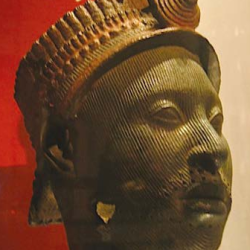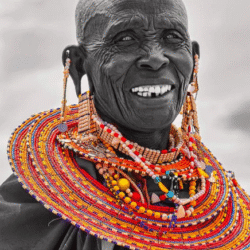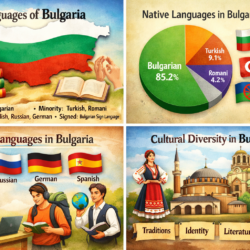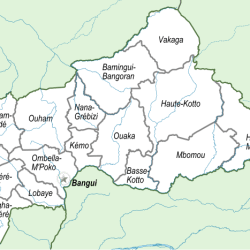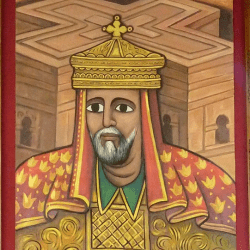Albert Chinualumogu Achebe (1930–2013) was more than just a novelist — he was a cultural historian, political thinker, and a voice that reshaped how the world perceived Africa. Best known for his debut novel Things Fall Apart (1958), Achebe blended storytelling, history, and moral clarity to challenge colonial narratives and give Africa its own voice in the global literary stage. Through novels, poetry, essays, and lectures, Achebe bridged the gap between Igbo oral tradition and the written word, between pre-colonial heritage and modern realities.
Early Life and Education
- Born: 16 November 1930, Ogidi, Anambra State, Nigeria
- Family Background: Achebe was born into an Igbo family of Christian converts, which exposed him early to both African traditions and Western religion.
- Early Education: Attended government schools where he excelled academically.
- University Life: In 1948, he entered University College Ibadan to study medicine but soon switched to English, history, and theology after discovering his passion for storytelling.
It was here that Achebe encountered British literary works — including Joseph Conrad’s Heart of Darkness — which, while well-crafted, portrayed Africa through a distorted colonial lens. This would later fuel his critique of Western representations of Africa.
The Rise of Things Fall Apart
In 1958, Achebe published Things Fall Apart, his first novel.
- Plot Summary: The book follows Okonkwo, a proud Igbo leader, as he navigates the disruptions brought by British colonialism and Christian missionaries.
- Impact: It became the most widely read book in modern African literature, translated into over 50 languages and selling millions of copies worldwide.
- Themes: Tradition vs. change, masculinity, fate, and cultural survival.
The novel’s title, taken from W.B. Yeats’ poem The Second Coming, reflects the shattering of Igbo society under colonial pressure.
The African Trilogy
Following the success of Things Fall Apart, Achebe expanded his exploration of African identity and colonialism with two more novels:
- No Longer at Ease (1960) – Following Okonkwo’s grandson in post-colonial Nigeria, exploring corruption and moral compromise.
- Arrow of God (1964) – Set in the 1920s, this work portrays a spiritual leader caught between colonial authorities and his own people.
Together, these novels form The African Trilogy, chronicling the journey from pre-colonial independence to colonial domination and finally to the uneasy realities of independence.
Challenging Colonial Narratives
Achebe became one of the loudest voices against stereotypical portrayals of Africa in Western literature.
- 1975 Lecture: An Image of Africa — a critical essay delivered at the University of Massachusetts Amherst, where Achebe famously called Joseph Conrad a “thoroughgoing racist” for his dehumanizing depictions in Heart of Darkness.
- His criticism reshaped literary studies, forcing a reevaluation of the “canon” and inspiring post-colonial literary theory.
Political Engagement and the Biafran War
When Nigeria descended into civil war (1967–1970), Achebe supported the secessionist state of Biafra.
- Served as a cultural ambassador for Biafra.
- Used his writings and interviews to raise global awareness of the humanitarian crisis.
- His wartime poetry collections, such as Beware, Soul Brother, reflect the trauma of that era.
Later Life and Teaching Career
- In 1990, Achebe suffered a car accident in Nigeria, leaving him partially paralyzed and wheelchair-bound.
- Relocated to the United States, where he taught at Bard College (1990–2009) and later at Brown University (2009–2013).
- Continued publishing essays, poetry, and his final major work, There Was a Country (2012), a memoir of the Biafran War.
Mentorship and the African Writers Series
Achebe served as founding editor for the Heinemann African Writers Series (1962–1972), publishing and promoting authors like:
- Ngũgĩ wa Thiong’o (Kenya)
- Flora Nwapa (Nigeria’s first female novelist)
- Ayi Kwei Armah (Ghana)
This platform launched the careers of countless African writers, creating a literary movement that continues today.
Major Works
- Novels: Things Fall Apart, No Longer at Ease, Arrow of God, A Man of the People, Anthills of the Savannah.
- Short Stories: Girls at War and Other Stories.
- Poetry Collections: Beware, Soul Brother, Collected Poems.
- Essays: Hopes and Impediments, The Education of a British-Protected Child.
- Memoir: There Was a Country.
Awards and Recognition
Achebe received over 30 honorary degrees from universities worldwide. Notable honors include:
- Man Booker International Prize (2007)
- Commonwealth Poetry Prize
- Peace Prize of the German Book Trade
- National Arts Club Medal of Honor for Literature
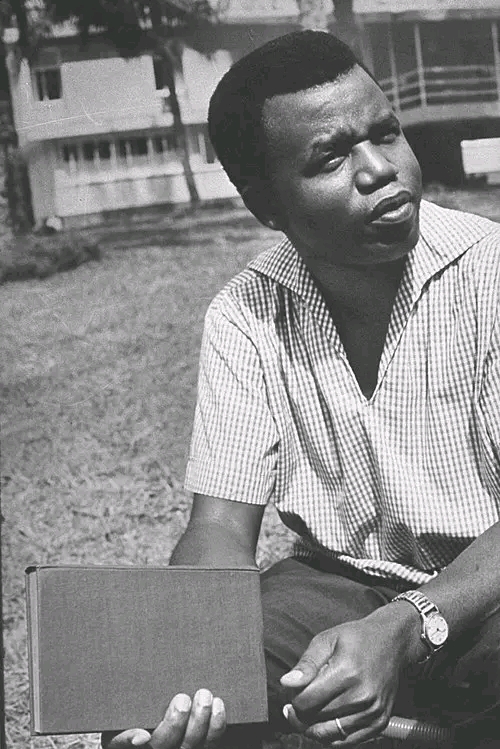
Legacy
Chinua Achebe’s influence reaches far beyond literature:
- He redefined how Africa’s story is told — by Africans themselves.
- His works remain required reading in schools across Africa, Europe, and the Americas.
- He inspired generations of writers, from Chimamanda Ngozi Adichie to Teju Cole.
When Achebe died on 21 March 2013, the literary world mourned not just a writer, but a cultural giant whose words continue to speak truth to power.
Frequently Asked Questions
Q: Why is Achebe called the “father of African literature”?
Because he was the first to gain worldwide acclaim with an authentic African voice that challenged colonial stereotypes.
Q: What is Achebe’s most famous book?
Things Fall Apart (1958), which has sold over 20 million copies worldwide.
Q: Was Achebe only a novelist?
No — he was also a poet, essayist, critic, political activist, and teacher.
Chinua Achebe transformed African literature from something seen through foreign eyes into a body of work grounded in its own culture, history, and voice. His legacy is not simply that he told African stories — it’s that he proved those stories matter to the world.
